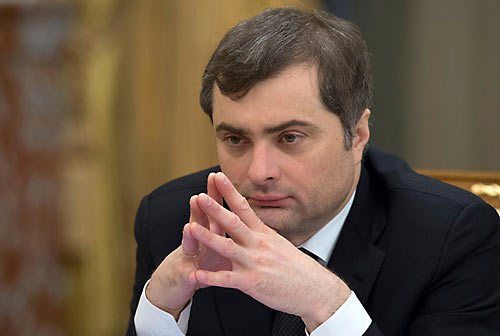
Among documents revealed in hacked emails were specific documents on handling the financial budgets of departments within the so-called DPR, appointing specific leaders, and managing the editorial lines of separatist and Russian media in regards to the conflict in eastern Ukraine, according to @DFRLab.
Besides, some emails show that Surkov is not just the Russian representative to international discussions related to eastern Ukraine, but rather, he is something closer to an overseeing body for the supposedly independent “self-proclaimed” separatist republics, providing support and acting as a ultimate authority for key decisions. This is illustrated in an email sent to Surkov’s inbox on December 15, 2015 providing a list of proposed candidates to lead the so-called LPR ministries. A similar email was sent to Surkov for approval for so-called DPR ministers, with additional input from Russian billionaire Konstantin Malofeyev.
A look into Surkov’s leaked inbox is only a small part of describing Surkov’s role as one of the Kremlin’s main connection to Donetsk. A Reuters article from May 2017 cites three former “separatist” leaders to illustrate how Surkov “played a key role in the appointment of Alexander Zakharchenko as leader” of the DNR, reflected by documents in the leaked inbox. With the ascension of Zakharchenko, two key figures in Donetsk — Aleksandr Borodai and Igor “Strelkov” Girkin — stepped down following a “verbal order from Surkov’s office.”
The Reuters report goes on to clarify that Surkov is not merely a representative meeting with U.S. representatives on the situation in eastern Ukraine — including former Assistant Secretary Nuland and, now, Ambassador Volker — but instead the representative responsible for management and negotiations of the so-called "republics."
Surkov’s activities, which began at least six months before the internationally-brokered Minsk peace deal, focused on choosing personnel to take senior posts, on creating a structure for the separatist administration, on formulating a media strategy for the separatists and planning local elections, according to the people who spoke to Reuters.
In July, so-called DPR leader Aleksander Zakharchenko made a surprise announcement that Ukraine — not just Donbas — was being transformed into Malorossiya, with a political transition “ready” to be put in place. This announcement was met with more laughter than consideration from the West and Kyiv, and surprise from many in Moscow.
Read alsoPutin’s aide Surkov playing central role in supervising Donbas militants - mediaHowever, according to some in Moscow and Donetsk, Surkov may have had a part in this “Malorossiya Initiative.” Surkov himself told RIA Novosti that the idea of Malorossiya was “hype” but also “useful,” as it presented a plan for all of Ukraine “and not just a part of it.”
Surkov’s level of involvement with the Malorossiya Initiative — which died almost as soon as it started — is still unclear, but the announcement of a new state meant to replace Ukraine is, to put it mildly, not constructive in the frame of the current Minsk agreements or negotiations.
At the same time, it should be kept in mind that Surkov worked in advertising and propaganda for most of his adult life, and that he is also able to sell a grand image of himself to the world.
However, the recent flap with the “Malorossiya Initiative” shows that Surkov is not an infallible master of post-modern propaganda — either he helped come up with the idea that isolated Donetsk’s allies in Luhansk and Russia, or he was not able to control his chosen leader of Zakharchenko in Donetsk to keep the idea from being announced. Open source materials allowed the experts to cut through the hype surrounding Surkov and see how his propaganda operations actually work. ”The results are not exactly overwhelming, with close connections to nationalist publications and fake letters sent from the ‘public representatives of the Donbas’ to be published in RT.”
Read alsoU.S. State Dep not to "dignify with response" militant leader’s statement on "Malorossiya"Understanding Surkov’s real influence and capabilities is essential for assessing potential progress in talks between him and U.S. Representative for Ukraine neogotiations Kurt Volker, according to the experts. “While Surkov is not quite the all-powerful figure he is made out to be in much of the Anglophone media, he is still one of the most connected and influential players in the close relationships between Russia and the so-called DPR/LPR, with leaked digital materials showing the levers of power he has been able to use to influence the ongoing conflict in eastern Ukraine,” @DFRLab wrote.

